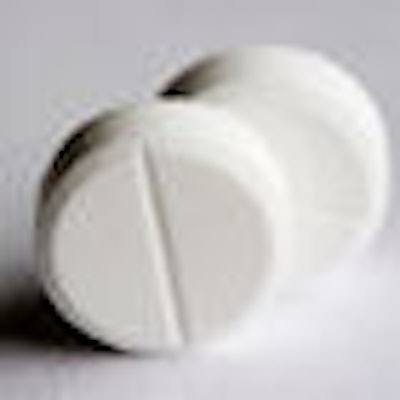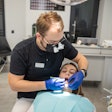
One morning last February, 19-year-old Madalyn Byrne woke up with a toothache. So the University of Oklahoma student did what many in her condition would do: she took some Tylenol.
Weeks later, she became ill with flu-like symptoms and within days died from acute liver failure -- all from ingesting too much acetaminophen, according to authorities. Byrne was reportedly taking as many as nine 500-mg Tylenol tablets a day for several weeks, just over the recommended daily maximum of 4,000 mg.
|
Recommended dosage The recommended dosage of acetaminophen for an adult or teenager is no more than 4,000 mg every 24 hours -- for example, two 325-mg tablets every four hours or two 500-mg tablets every six hours. For children, the maximum daily dose is weight-based: 34 mg/lb of body weight every 24 hours. |
Byrne's case is not as unusual as you might think. Acetaminophen, also known as paracetamol and APAP, is one of the most common pharmaceutical agents involved in overdoses, accidental and otherwise, according to the American Association of Poison Control Centers (AAPCC). The FDA estimates that 50,000 people seek emergency room treatment for acetaminophen poisoning each year, and a 2005 study found that acetaminophen poisoning had become the most common cause of acute liver failure in the U.S., with unintentional overdoses accounting for nearly half of all cases (Hepatology, December 2005, Vol. 42:6, pp. 1364-1372).
By 2006, the FDA considered the situation serious enough to warrant new labeling on all over-the-counter products containing acetaminophen. Still, in 2007, 36,230 acetaminophen overdoses occurred in the U.S., according to the AAPCC.
Acetaminophen is considered safer than aspirin for children and teenagers, and better than aspirin and ibuprofen for adults because it avoids such side effects as stomach ulcers and kidney problems. In dentistry, in addition to general pain relief, studies have shown acetaminophen is a safe and effective analgesic for relieving postoperative pain following a number of in-office procedures, including soft-tissue gum surgery and third-molar extractions (Cochrane Database of Systematic Reviews, 2007, Issue 3. Art. No.: CD004487).
Overconfidence in over-the-counter
Experts say the real issue is an overconfidence in the general safety of over-the-counter medication, combined with a lack of understanding about the side effects if recommended dosages are ignored or overlooked.
"Consumers with coughs and colds sometimes don't realize that if they take two Tylenol extra-strength tablets plus multiple over-the-counter cough and cold remedies that also contain a significant amount of APAP, the total amount of APAP may be far in excess of the maximum recommended dose," said Joel Weaver, D.D.S., Ph.D., president of the American Society of Dentist Anesthesiologists.
“People have to be careful, and they definitely can use some guidance from their dentist.”
— Michael Brennan, D.D.S., M.H.S.
For relief of toothache pain, consumers may continue to take more than the maximum dose on the package label because they are in such agony and so desperate for pain relief that they mistakenly believe that "more is better," he added.
"Acetaminophen is very safe when used according to directions to manage acute dental pain until the problem can be diagnosed and treated by a dentist," Dr. Weaver said. "But APAP has a ceiling effect for pain relief, meaning that above the maximum recommended dose, additional drug is not beneficial and may be harmful."
In acetaminophen overdoses, a toxic liver metabolite of APAP known as NAPQI is formed in excess amounts that cannot be neutralized by the body's own defenses. High blood levels of this metabolite can be highly toxic and result in central lobular necrosis of the liver, acute liver failure, and death.
It takes about three days after an overdose for the liver to begin failing. The victim may start feeling some nausea and loss of appetite on the first day following the overdose, and may have abdominal pain and tenderness (particularly below the right ribs) on the second day. If left untreated, the abdominal pain will become increasingly severe and other symptoms will occur: hypoglycemia, coagulation defects, encephalopathy, and, finally, death.
"Fortunately, if the overdose is diagnosed fairly quickly, there is an antidote called N-acetylcysteine that will increase the body's amount of glutathione and inactivate the toxic metabolite [NAPQI]," Dr. Weaver said. If the victim waits too long to seek advice and help, however, the antidote may not be effective.
How can dentists help? By ensuring that they pay attention to the amount of acetaminophen in commonly prescribed pain medications such as Lortab or Vicodin, opioids that combine hydrocodone and acetaminophen, said Michael Brennan, D.D.S., M.H.S., associate chair of oral medicine at the Carolinas Medical Center in Charlotte, NC.
"A common mistake with Lortab prescriptions is they are often 5/500 -- 5 mg of hydrocodone and 500 mg of acetaminophen -- and the prescription is written for one to two tabs every four to five hours, pnr for pain," he said. "But if the patient takes two tabs every four hours, that would be 6,000 mg of acetaminophen, way over the limit of 4,000 mg every 24 hours."
Acetaminophen can also be combined with other nonsteroidal anti-inflammatory drugs (NSAIDs) such as ibuprofen or aspirin, but only for short-term usage and within the recommended dosages, he added. In addition, it is important to determine if the patient is already taking aspirin for anticoagulative or anti-inflammatory purposes.
"If you read the literature, there is some suggestion that adding NSAIDs or narcotics to the aspirin could take away some of the anticoagulant properties," Dr. Brennan said. "So you need to ask the patient why they are taking the aspirin. If you tell someone to go off it because 'you're getting enough pain medication already,' that could put them at risk of poor coronary outcomes."
There are other alternatives for short-term pain management, he added.
"A lot of people will start with hydrocodone and acetaminophen, but you could go to a combination of hydrocodone and ibuprofen, although not for more than a week," Dr. Brennan said. "Studies on pain control have shown that you can increase the ibuprofen to 400-600 mg every four to six hours, short-term."
If the patient is still in pain, the amount of hydrocodone could be increased. If that doesn't work, the next step would be Percocet, according to Dr. Brennan. The goal is to make the patient comfortable without putting them at risk.
"At least once a year, we have an acetaminophen overdose case that ends up in the ICU -- a person who had a toothache and took too much Tylenol," Dr. Brennan said. "People have to be careful, and they definitely can use some guidance from their dentist, telling them do not go over this amount. A Tylenol overdose is a very serious thing unless you treat it quickly."



















